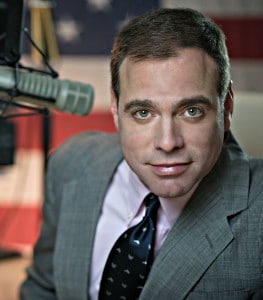
Tuesday’s article on Radioink.com by Franklin Raff ignited a lot of passion about the Main Studio Rule, both in favor and against removing it. On Tuesday, The FCC voted 3-to-2 to eliminate the rule and radio stations will no longer be required to maintain a main studio located in or near its community of license. In case you missed it, here’s Raff’s article again and the many comments our readers posted about it.
(By Franklin Raff) In Minot, ND, in 2002, a train carrying caustic chemicals derailed, releasing deadly gas. Police tried to contact local radio stations to warn the public, to no avail. EAS failed. Phones went unanswered in the empty studios and offices of six radio stations – owned by one company – as a thousand people were injured and one died. Desperate citizens tuned in; satellite-fed deejays kept the hits coming.
The dereliction of the group in Minot was deemed a freak lapse in corporate responsibility and a gross violation of FCC regulations, namely the long-standing Main Studio Rule requiring stations to have a responsive physical presence in or near their communities. All of that is about to change. The FCC now says it’s time to abolish the Main Studio Rule, ending even the ability of station operators to originate programming.
The new ruling will: Eliminate existing requirements associated with the main studio rule, including the requirement that the main studio have full-time management and staff present during normal business hours, and that it have program origination capability.
The FCC has always maintained stations “must serve the needs and interests of the communities to which they are licensed.” The new logic is that by eliminating the cost of being in their communities, stations will be better able to serve their communities. But experience shows, of course, stations leave and don’t return. “Community presence” means tower lights on the skyline and the station ID at the top of the hour.
According to the FCC:
The Commission first adopted main studio requirements in 1939 to ensure that stations would be accessible and responsive to their communities. However, a local main studio is no longer needed to fulfill these purposes.
How can a broadcast facility be “accessible and responsive to its community” when it is not in the community, is not a facility, and cannot broadcast?
Many broadcast studios are long-abandoned. Few groups even have a receptionist. These are cost-cutting measures, and efficiency is good. But let us see these trends in context. Our industry is in the hands of very few players: two companies now own half of our country’s stations.
As we know, the well-intentioned 1996 Telecommunications Act changed ownership rules so that near-monopolies could exist in most markets. It was billed to increase profitability and enhance consumer choice. The result was also a decline in local service and — not coincidentally, for a medium whose unique selling proposition is local service — audience share and revenue. The “better for the consumer” part – “competition” – meant drastic programming cuts. Local radio came to offer what emergent smartphones and satellite radio did – along with interminable commercial breaks.
Let’s zoom out. Stations are licensed to serve local communities for commercial benefit. Licenses granting significant power and coverage at desirable frequencies are enormously valuable. They are generally held by the same interests who pushed for deregulation and who now, again citing competition, want to ditch the Main Studio Rule.
Fair competition entails rules. If a broadcaster cannot profitably fulfill FCC-mandated obligations, instead of lobbying to change them, should it not sell the station? The FCC recently released a flurry of low-power FM licenses. Many of these stations, with transmitters emitting as much power as a light bulb, manage to maintain “staff present during normal business hours” and “program origination capability.” Why can’t the big boys do it?
We have all seen, through the arc of deregulation and the rise of the Internet and smartphones, a decline in terrestrial radio listenership. Syndication and homogenization was good for short-term profitability but radio’s best position against media competitors withered just when it was needed.
Now, after years of regurgitating the sort of impersonal, cookie-cutter audio we associate with streaming services, disaster event listenership and news/talk ratings trends confirm a strong demand for the intimate “localism” we do best. This is our time to shine. Why would we want any part of our public-service mandate and unique selling proposition – localism – to be extinguished?
By absolving radio owners of local obligations, the FCC will help owners cut costs. That’s a good thing for the owners. Market forces and experience indicate it will also open up even more opportunities for local content providers in less-regulated, less-reliable, less-ubiquitous media: Not so good for listeners, or radio, in a time of crisis or any other time.
When this next cost-cutting binge is over, when the winners in this deal cash out and Minot becomes a tragic prophesy, why would anyone rely on radio?
Franklin Raff was a General Manager at a commercial radio station by the age of 20. He’s worked in both major markets and unrated markets. He can now be reached at [email protected] or (212) 203-2100






I was managing a small market station outside of Atlanta,..WPPL/FM, Blue Ridge,.. when 9/11 happened. We were EAS compliant and had been for years. No one activated the EAS in this part of the Country that day,..and I spoke with everyone I knew at every Radio Station in the North Georgia area that day wanting to know what they knew and what they were doing. No one knew anything and we all decided to go wall to wall with live news from whatever network we were affiliates of,..breaking in with local news whenever we had something. The incompetence of Government is astounding and why anyone would actually depend on a bunch of bureaucrats is beyond belief.
What people don’t seem to “get”…is that being local means more than just providing local programming. It means being an active part of the community you serve. It means living and working in the community, interacting with others in the community, being an active member of organizations and really caring about the future of the community you’re licensed to serve. Even before the latest move I can give you a long list of communities that no longer have radio stations because they license was purchased and the station is now run out of a nearby regional center. You’ll see more of this now. The argument that licensees will still serve their community when they no longer have a physical presence there is a myth. I have been in small market radio fulltime for 43 years, I know what I’ve seen, I know what has happened and I know what WILL happen. Elimination of the main studio requirement is a really bad idea for the future of radio broadcasting. Franklin is right on the money.
You’re assuming that the only reason companies have stations in a town is because of an FCC rule. You don’t need a main studio rule to have a main studio. The only reason the rule exists was for access to the public file. Now that file is posted on the internet so the entire world can view it. No reason to require a station to provide that kind of physical access. Understand?
Meanwhile, it’s “Educational” Media Foundation that is probably cheering the loudest about this, because now CEO Mike Novak will no longer be bothered with the paperwork for “main studio waivers” in the future. Novak and EMF gamed the Main Studio Rule in order to grow a network of 700+ full-power stations and translators, and it just got easier for them.
Why does God need even one transmitter, much less 700?
So I’m guessing the big companies now will get rif all their small market offices and studios eliminating any local talent that may be left. I know in a lot of these markets the gutting started 10 years ago, but there may be a few people left who will now get the shaft.
The fact that the NBA wanted this to pass assured me that this broadcaster will never ever join the NBA. It’s always about the money, forget about integrity, smh
This is so against the original platform of the FCC they may as well abandon all rules
What does the NBA have to do with this? Live basketball coverage will continue on local radio despite the elimination of this rule. You must be confusing the NBA with the NAB. Something tells me you’re not an actual broadcaster, but a wanna be. Just so you know, the FCC doesn’t really have a platform. Once they required stations to post public files online, this rule became superfluous. Just read the rule.
1. If a station or group wishes to maintain local presence during a crisis, or at any particular time, fortunately there will be no requirement that the main studio*must*be eliminated.
2. It might be argued that in Minot, the failure was one of EAS. Aren’t emergencies like this what it’s for?
The stations purchased and furnished the Minot police with an EAS box for origination. Local law enforcement never installed it. The Minot station cluster responded quickly and staffed up. Published reports ignored that (Now why would a local newspaper pick on the competition?) and the “empty studio’ became a broadcast urban legend.
Congratulations Franklin, you started without attention to facts on record and then moved on to demonstrate your lack of math skills: The total number half of our country’s stations falls far short of “half the stations in the country.” That leaves one to wonder what other invalid assumptions are in there.
Here we go again with the Minot myth. It happened at 2AM on a weekend. Try reaching your doctor at 2AM on a weekend. Try reaching the gas company at 2AM on a weekend. “Desperate citizens” didn’t tune in. They were asleep. The DJs were not “satellite fed.” There were Congressional hearings on Minot. They didn’t blame Clear Channel. The real question was: Why was a train carrying hazardous chemicals traveling in the dead of night at high speeds through a populated area, and failed to inform local emergency officials? Why indeed. The train was to blame, not local radio. The Homeland Security Act, passed after 9-11, put local emergency officials in charge of informing the community, not local radio. EAS failed because local emergency officials didn’t set it up properly. The biggest point here is that the Minot myth happened WITH the main studio rule intact. So even with an FCC requirement for main studios, there is no requirement that such a studio be manned 24/7. If the government wants to make radio stations responsible for emergency services, they need to change the Homeland Security Act, not the Main Studio Rule.
I loved Clear Channel and my years there but this isn’t about renegade trains or corporate loyalty or Bush’s Fault. The stations WERE empty. People were NOT trying to reach their doctors or mechanics or beauticians or the “gas company,” they were scanning ALL of their stations all night and morning to find out why they couldn’t breathe, and emergency responders were, desperately, trying to reach the stations. The main studio rule WAS intact, but the rule was broken.
“The stations WERE empty.”
Not true. Within an hour, the board op at the station contacted the news director, who drove through the poisonous gas to get to the station to report the news. The radio station reported the derailment several hours before local TV. As I said, the Minot story is a myth. People were asleep. They had no knowledge of the train derailment until they woke. What emergency officials would have told them was to stay indoors, which is what they did. No one had trouble breathing because they were indoors asleep, doing what they should have done in such a situation.
Jeez. Have your “news director” call the ICU at St Joseph’s in Minot and ask the nurse on duty – or ask the CMO – whether Minot was a “myth.”
The myth is making the radio station responsible for what happened. A Congressional investigation determined that the radio station was not responsible, and that the station reported the derailment before anyone else in town. Having the radio station report a derailment, and warning people to stay indoors wouldn’t change a thing. But back to the point, the Main Studio Rule doesn’t require staffing, so eliminating it wouldn’t change a thing.
Why not embrace responsibility?
Sorry, Cyrus E. You and the author are both wrong on what the main studio rule requires. It doesn’t require anyone to be at the station at 1am. Never has. There were other regulations requiring an operator on duty up until November of 1995. But that operator did not have to be local.
Local authorities nationwide were very slow to pick up on the EAS system and its capabilities. By very slow I mean about 15 years.
In small markets, The main studio for many is a expensive boat anchor. I visit my clients every week. I stop by our community partners and see what we can do for them. We do many local remote broadcasts. We do high school football, and none of that requires a visit to our studio. We provide news, sports, weather, community announcements. We get many “good morning” texts from our listeners or “could you announce this” and we do. In today’s fast paced world, and in small markets most people don’t have time to visit the radio station. 99% our our correspondence is via email, and most phone calls begin with “can you stop by and see us” The main studio should be a option, not a requirement. It will not impact those who wish to keep one open. This might save many stations (like AM day timers or rural broadcasters).
PS: Pai has suddenly gone quiet. Couldn’t have anything to do with Trump’s outrageous NBC license comment? Little boot-licker.
Excellent article! “Radio’s friend,” FCC Chairman Ajit Pai, is destroying local radio and there should be an outcry from the NAB. Instead, crickets. The ever-campaigning, self-promoter extraordinaire, must be taking some tasty kickbacks for this one. Almost to a person, everyone in radio says one of our remaining strengths is “live and local.” Which makes abiding by this FCC decision the height of hypocrisy. At the end of the day, radio is all about feeding the money monsters who were allowed to abduct the industry back in 1996. Ajit Pai is so intent on catching so called “pirates” (apparently the airwaves themselves are owned; they seem more like a public domain — “the commons” — to me) when the corporations running radio into the ground via blandness are the true pirates. Which I guess would make Pai their cabin boy. Publications like Radio Ink should be expressing outrage in no uncertain terms.
None of these corporations — nor the NAB, in a clear cut instance of ipso facto — put the listener first. It’s all a greed fest and a big con. And THAT, not the Internet et al, is why radio stands at the gallows.
“How can a broadcast facility be “accessible and responsive to its community” when it is not in the community, is not a facility, and cannot broadcast?”
Who cares, as long as the corporate bonuses are bigger and they can make a small nick in the interest on the money they owe?
You present very valid points, Franklin. I’m semi-retired now and spent decades in both local and corporate radio. You ask the question: “…these stations, with transmitters emitting as much power as a light bulb, manage to maintain “staff present during normal business hours” and “program origination capability.” Why can’t the big boys do it?” There is a simple answer. Stock price. When I was in Cumulus Corporate during the early days (before it became a public company) the question in the halls was “What have you done to improve broadcast quality of your stations?” After it became a public company the question was “What have you done to improve shareholder value?” The focus was off the product and on to the stock price. Which meant cost slashing (as opposed to cost cutting). Whether or not the main studio rule is abolished will not alter the fact that too many stations are now music in a box and serve no community service.